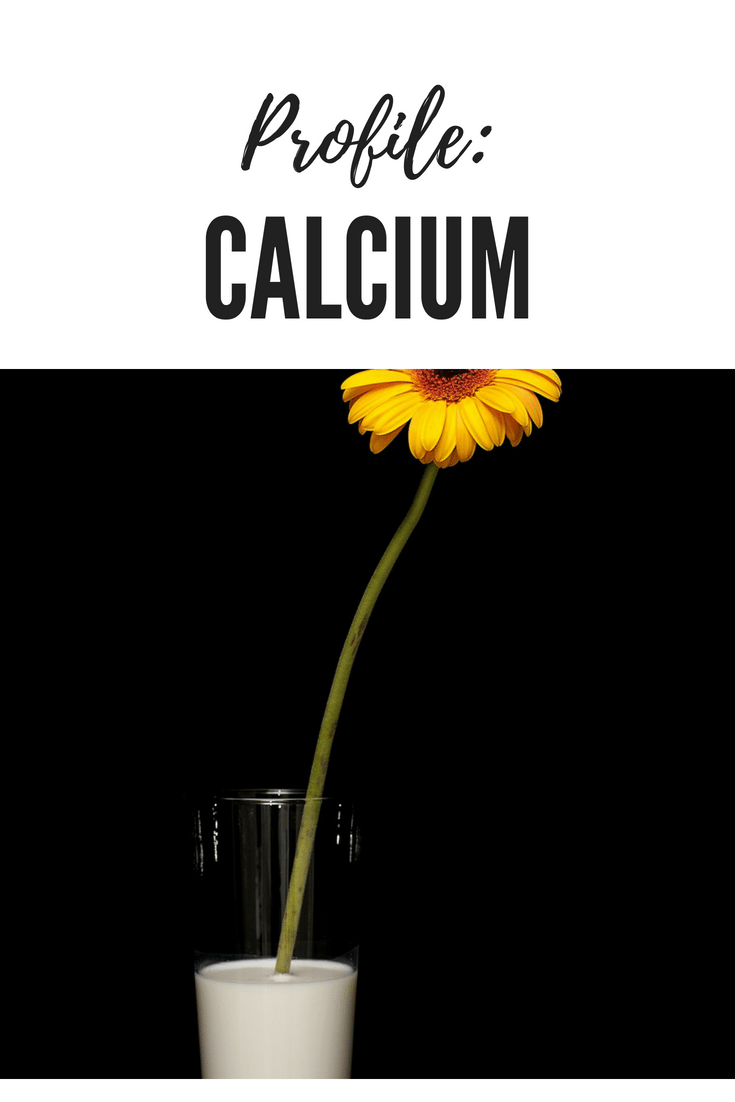Calcium is a mineral everyone hears about a million times by the age of 10 thanks to milk commercials. But, what exactly is calcium, how does it work, and how can you know if you have a calcium deficiency?
By Danielle, contributing writer
Calcium is one of the best known minerals thanks to the dairy industry and USDA’s advertising throughout the last few decades. Most parents are convinced that milk is an essential daily drink, and any child who goes without will suffer broken bones.
What does calcium do?
Truth is that calcium is necessary for bone health, but also for so much more in the body. Calcium is responsible for regulating blood pressure, nerve signals, muscle health, manage heart rate and rhythms, and so much more. Research is beginning to understand the relationship of vitamin D and calcium in cancer prevention.
Calcium works with other minerals, such as phosphorus and potassium, but especially magnesium, to balance your mineral levels. Calcium is, however, is the highest amount of any mineral found in the body. The majority of calcium is stored in your bones and teeth. It’s important to note that without balanced magnesium levels, you may not be able to assimilate calcium in the body. So, if you have a serious calcium deficiency, you may need to look at supplementing magnesium along with or even before beginning a calcium supplement.
Your body also needs plenty of lysine, phosphorus and vitamin D to process calcium, so eat more foods which also contain these important substances. Finally, antacids can limit the absorption of calcium, so discontinue their use. High zinc levels has also shown to limit calcium absorption. These issues, including poor gut health leading to poor absorption, are often the reason for calcium deficiency, and not low calcium in the diet.
Our bodies do not produce calcium, so it must be consumed in our food supply or supplemented.
Natural Sources of Calcium
Since calcium needs balanced other minerals, and likely vitamin D, to assimilate well in the body, most natural health practitioners suggest getting your calcium through natural sources before trying a supplement.
- White and Kidney beans – About 20% of daily needs in 1 cooked cup.
- Almonds and Sesame seeds – A handful of each will supply about 15% of your daily calcium needs.
- Okra – You will get about 15% of your daily needs of calcium from one cup of cooked okra.
- Collard and Mustard Greens – One cooked cup of these greens will deliver about 10% of your daily needs.
- Milk and milk products – You will get about 30% of your daily needs of calcium in one cup of milk, and less from its products. However, it’s best to find raw milk, yogurt (heated to 115 degrees or less), cheese, and kefir. Depending on your state, you may be able to find raw milk at your grocery, own a cow share, or need to find a direct farmer to purchase raw milk. Though it’s extra work, it’s well worth the work as pasteurization destroys a lot of the milk’s beneficial enzymes.

Signs of Low Calcium, And How To Test
Children, young women, and postmenopausal women are most likely to suffer from calcium deficiency. Some signs of a calcium deficiency include:
- Recurring bone fractures or breaks
- Irregular heart rhythms
- Blood pressure issues
- Osteoporosis or other bone disease diagnosis
- Stunted growth in children
If you suspect you have low calcium, you can have it tested via a blood, urine, or hair mineral tissue analysis. Your doctor can order a blood test, but you can also order online. Most prefer to test minerals via a hair tissue analysis.
Best Calcium Supplements
Be sure to heal your gut before trying to increase your calcium supply, as most of us actually eat enough calcium in our diet, but our damaged guts cannot assimilate it. Then, be sure you have enough magnesium, vitamin D, and that your other minerals are balanced. If after these steps, you still have low calcium, you can try to start supplementing. Consuming natural whey is the best way to supplement calcium. Look for an organic and grassfed whey, like this one. One serving of whey protein supplies 60% of your daily needs of calcium.
There is some controversial research that shows that consuming calcium supplements can actually decrease your cardiovascular health, leading to stroke or heart disease. For that reason, I would only supplement calcium through foods and whey supplementation.
If you have low calcium levels, focus on lowering your zinc (only if high in a mineral test) and oxalate-rich foods, and getting enough phosphorus, vitamin D, magnesium, lysine, and finally adding high calcium foods and whey.

